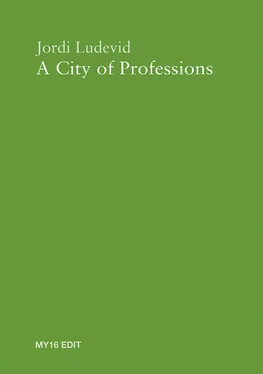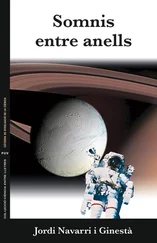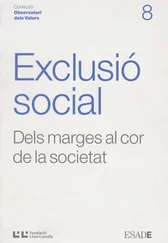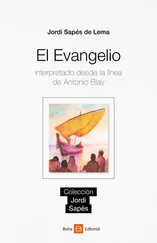It is absolutely fundamental to emphasise that the Hippocratic tradition establishes the professional fact on the basis of a two-fold commitment: the philo technè14 and the philo anthropoiè. As we shall see, this pairing withstands the test of time through history right up to the present day. In other words, «affection and commitment to practical knowledge» and «affection and commitment to people».15
Hippocrates’ proposals can be extended to all professions, as indeed they have been. His ethical code postulates concepts and principles that were later taken up by Cicero and which survive to this day, such as beneficence, compassion, commitment, confidentiality, social justice, excellence, training, the value of life, etc. And above all, «do no harm», the principle of non-maleficence, not using the practice to cause harm. These concepts gave rise to the so-called principles of the professions. Today, the four principles – beneficence, autonomy, justice and non-maleficence – are recognised and widely used: they have been followed, for example, by the National Bioethics Commission in the United States since the 1970s.
13Hammurabi’s Code contained provisions on doctors’ fees and on the penal code applicable to architects. It did not discuss the professions, although it implicitly recognised them. In ancient Greece and later in Egypt and Rome there were associations of merchants and craftsmen. Around the same time (5th century B.C.), Chinese Confucianism was an impressive phenomenon very similar to professionalisation.
14It may be useful to point out the similarities between philo technè and craftsmanship.
15See, for example, El médico y el enfermo, by Pedro Laín Entralgo, Madrid: Triacastela, 2003.
Cicero
During the classical Roman period, the collegia opificum were created at the municipal level,16 a forerunner of the medieval guilds, which later gave rise to the consortium advocatorum, a clear precedent of the legal profession.
De officiis (On Duties or On Offices) is the important philosophical work which Cicero dedicated to his son and which deals with the duties to which every man must adhere as a citizen and thus as a member of the State. Written during the final months of 44 BC, it has become a significant reference in the history of the professions. It clearly establishes the link between citizenship and the professions, a link that is still very relevant today. It is structured as a treatise on practical ethics, on civic virtues, strictly linked to politico-social action. In consequence, the book was interpreted as an attempt to define an ethic for the Roman ruling class. In the manner of a guide, a «cicerone»...
Although the intellectual foundations of Cicero’s work come from Greece, his work in general, and specifically De officiis, represents a decisive step forward in the history of the professions and trades, with regard to the codification of their principles and their dissemination. In clear continuity with the origins of the Hippocratic school, it illustrates the expansion of the professional fact, of its values and principles, across the European continent through the vast political reality that was the Roman Empire, which later made way for Christianity.
The double meaning of the word officiis (offices) is interesting. As a contraction of opus and fecit, it means ‘work completed’ on the one hand, and ‘duties’ on the other. For his part, Cicero posited the Latin word officiis as coming from the Greek word kazekon: ‘set of rules that are to regulate life in all its manifestations’, including professional life. Thus, the trades are associated not only with the execution of work, but also with a certain idea of duty, of rules. Thus, the meanings of the two words, trades and professions, are not as different as some people think.
Some 15 years after Cicero’s death, Marcus Lucius Vitruvius Pollio wrote his fundamental treatise De Architectura. In it, with the concept of decorum, he largely followed Cicero and Socratic-Ciceronian thought, which he often quoted and from which he drew his inspiration.
16It is worth highlighting this long-standing relationship between the municipality and the city, and the professional fact through the professional associations.
The Middle Ages
The medieval world Christianised the legacy of Hippocrates and Cicero and recognised very early on that religious practices (priests), legal practices (lawyers) and medical practices (doctors), because they were essential, had a strong impact on society. For this reason, their exercise had to be subject to regulation, some of it very strict. At the same time, they were considered liberal activities simply because they were freely exercised by free men. During this period, academic, guild-related and, in some cases, ecclesiastical and civil regulations began to be issued. This is how the first regulations or restrictions on professional activity came into being. Historians of medicine such as Paul Diepgen and Pedro Laín Entralgo attribute to Roger II of Sicily the first decree, published in 1140, which prohibited doctors who had not been approved by the State from practising on the island.
At that time, although knowledge (medical, legal, etc.) was acquired at universities, it was not defined or codified as it is today. The medieval university was dedicated to transmitting a curiosity for investigation, building on the work of learned precursors.
At that time already, the English expression «to take care of» captured the raison d’être of the professions, whose mission was to take care of the health of the soul, the health of the body and the health of material interests. Priests, doctors and lawyers – in short, the professions – came onto the scene to take care of human life that was threatened, contingent. This awareness of danger and risk, of limits, has always been present in the nature and in the essence and in the origins of the professions.
Somewhat later, Henry VIII, an enlightened king, founded the professional colleges in England, precisely in order to require them to be self-regulating and to delegate to them the powers of the State in the matters of their speciality. The College of Physicians still exists today as the Royal College of Physicians of London, making it the oldest of these institutions, founded in 1518. One of its tasks was to grant licences to practise medicine in London to those who passed their examinations, and to sanction those who failed to do so and those who engaged in malpractice. This licensing system was later extended throughout the country.
By way of example, some of the important tasks which the Royal College still fulfils today include:
•In conjunction with the Royal College of Surgeons, it awards the titles of «Member of the Royal College of Physicians» and «Licentiate of the Royal College of Physicians».
•It can authorise or disallow the practice of medicine in England, irrespective of university qualifications.
•It advises the UK government on health issues.
•Every 10 years it publishes a list of the most common diseases.
Finally, mention must be made of the birth and development of the important phenomenon of medieval guilds. From an economic point of view, a guild was a kind of holding of workshop companies dedicated to the same activity, mainly manual trades. It was a regulated holding, with exclusive functions and restrictions on practice, explicitly recognised by the political authorities. From a social point of view, the guilds were a powerful mechanism of urban cohesion and organisation, forming an essential part of the medieval social contract. Individuals were cared for by the guild, and it was the guild that guaranteed their economic, social and educational rights. In stark contrast to today’s professional institutions, the guilds had a great deal of power.
Читать дальше












